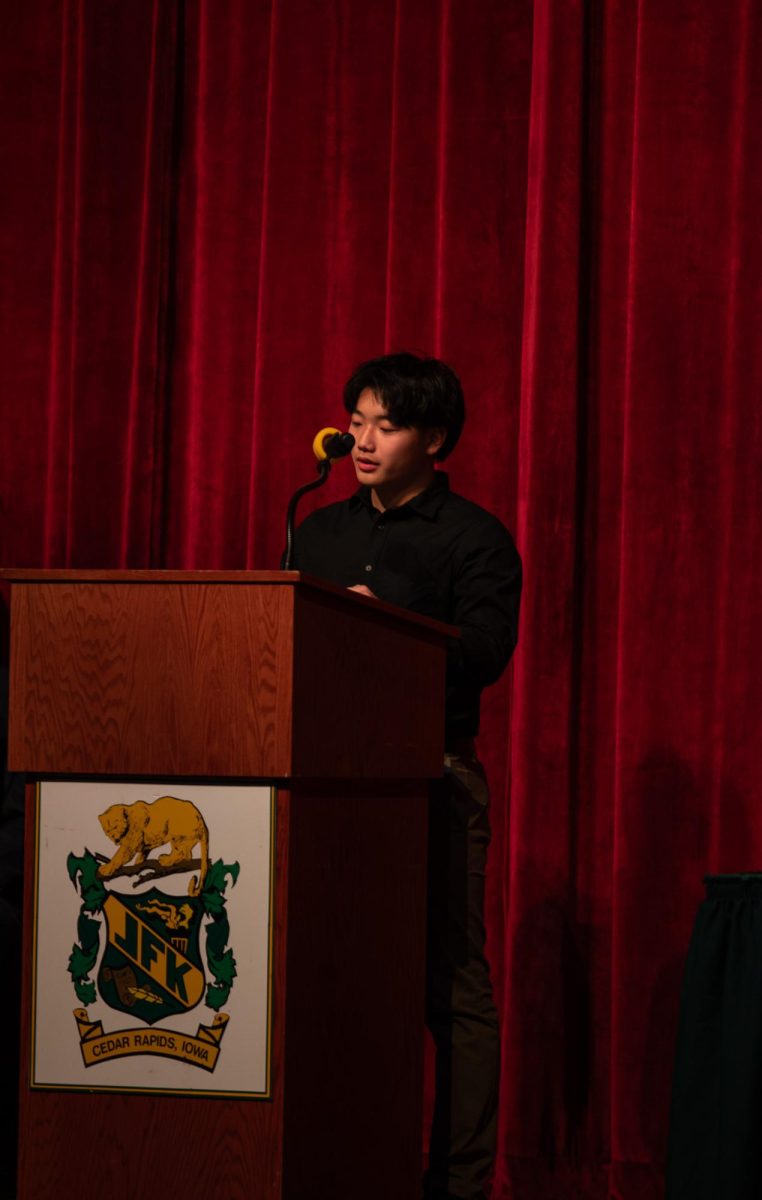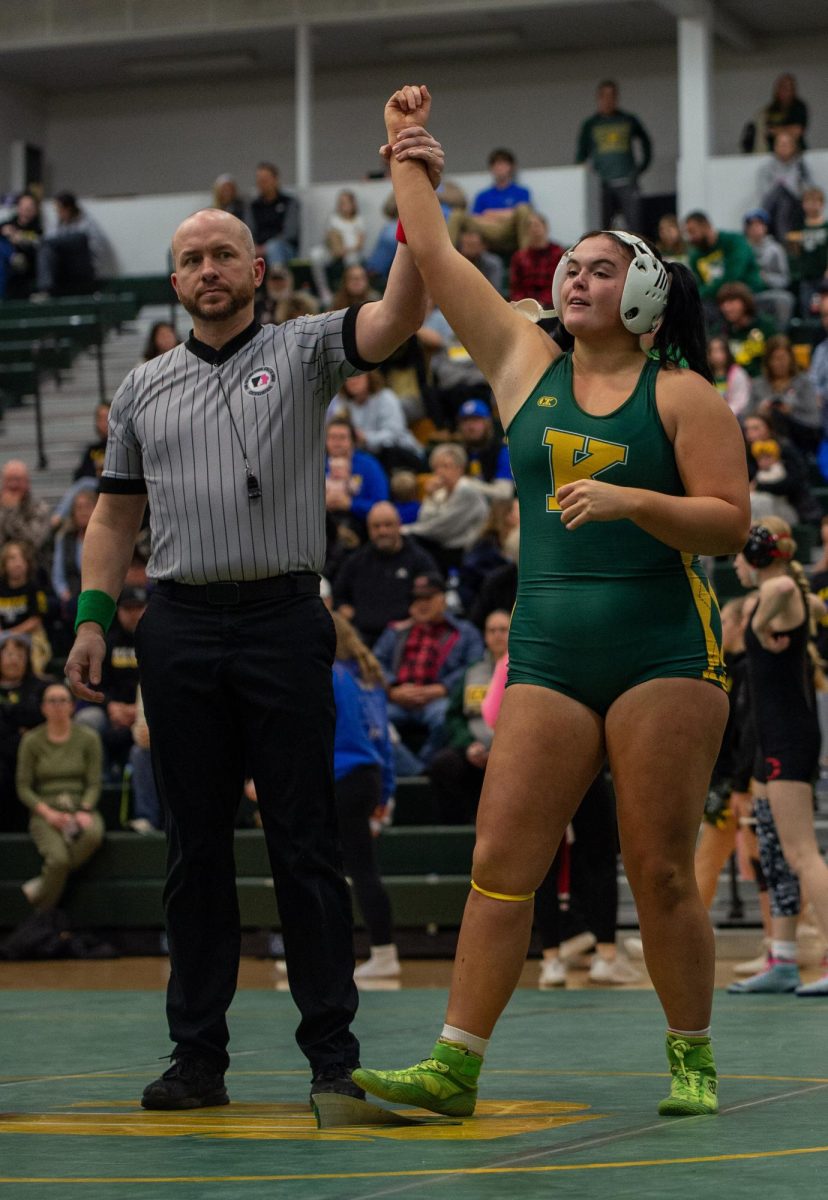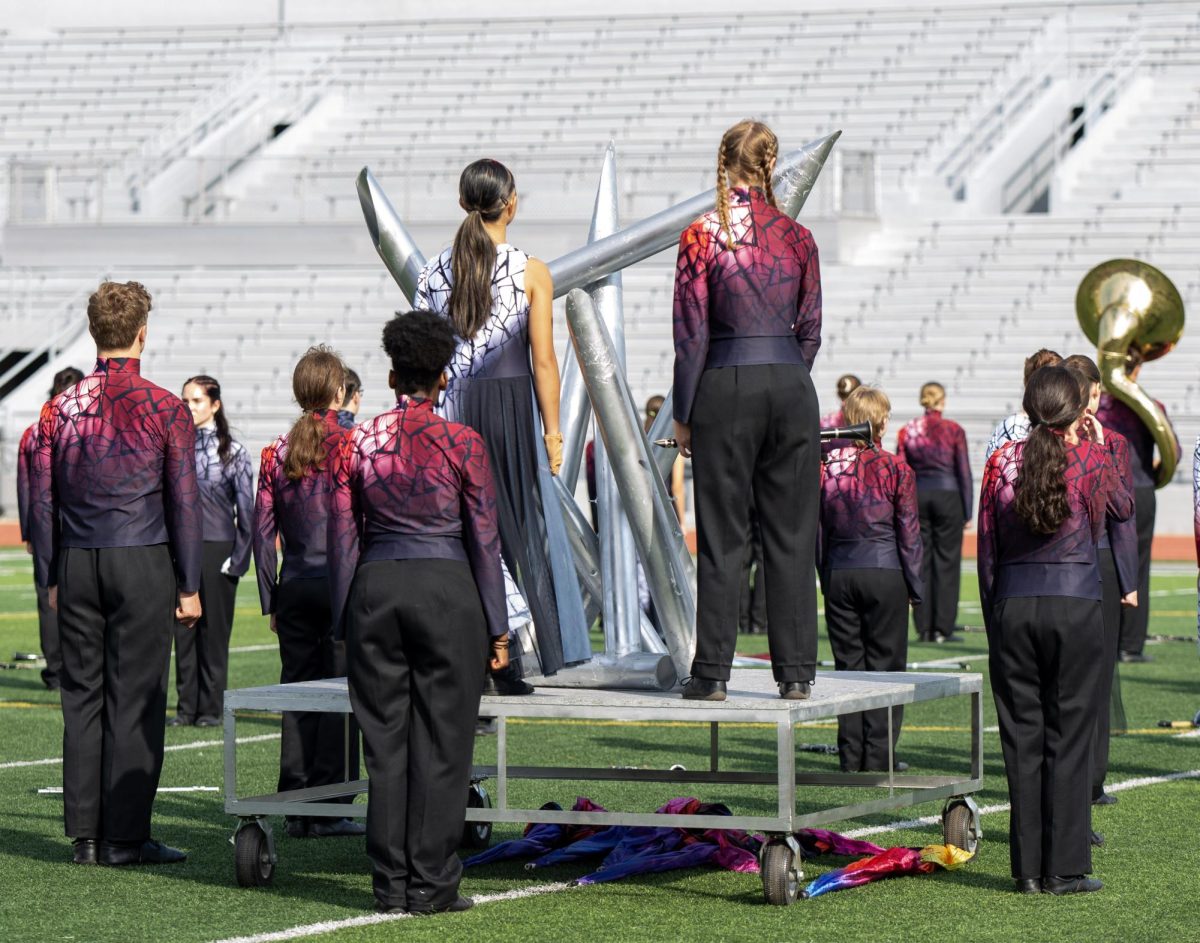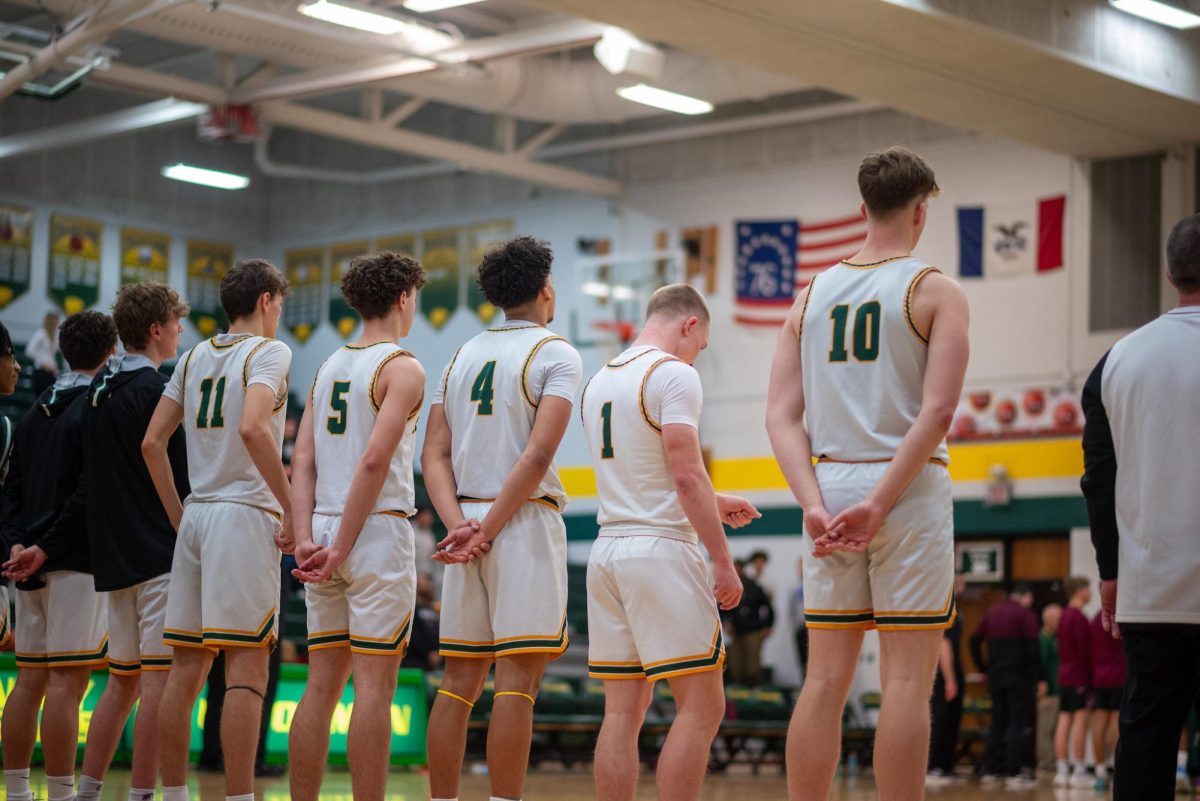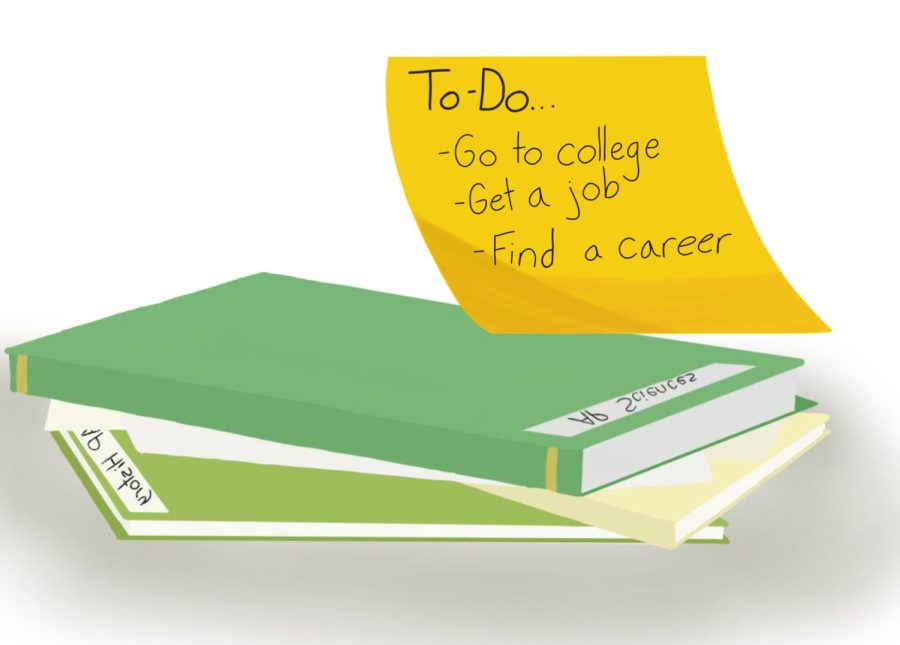How Do AP Classes Actually Affect Your Future?
AP classes are just a small part of a high school student’s concerns.
May 19, 2022
One of Kennedy’s most prized statistics is its AP participation, which is among the highest in Iowa. More than 47% of Kennedy students took an AP exam in 2021, and 34% passed at least one, according to U.S. News. AP credit is said to save students time, money and energy in college. What have AP classes done for Kennedy graduates?
Kayde Bowers is a sophomore at Iowa State University who graduated Kennedy in 2020. Bowers will major in Aerospace Engineering, which takes most students nine semesters to complete. The credit from his high school AP classes will allow Bowers to graduate in eight semesters.
“I haven’t met anyone who said they graduated in four years,” Bowers said. “But my AP classes got me out of over half a semester worth of classes, so all my [semesters] are less than 15 [credit hours], and my senior year, I’ll have a 12 credit hour semester. Which is nice, because you can’t go underneath 12 or else you’re no longer a full-time student.”
Graduating earlier saved Bowers a semester’s worth of payments, not to mention time.
“I was kind of worried I would have to take a fifth year, which would have been fairly expensive and [I] wouldn’t have wanted to go for the extra year,” said Bowers. “College is fun, but I’m kind of excited to start doing something, you know?”
AP classes let graduates to take on double majors with their extra time. Madison Strait, another sophomore at Iowa State University, is pursuing majors in chemistry and mathematics. Originally, she only planned to major in chemistry.
“I came into Iowa State with 29 credits under my belt, which is an entire year’s worth of credits,” said Strait. “So, I was like, ‘Huh, I’m not going to be able to graduate early because certain classes have to be taken [in] certain semesters.’ So I figured, why not add a second major?”
Kaleigh Martin is in a similar situation. After graduating from Kennedy in 2021, she went to Salem State University to double-major in history and education. Due to high school AP credit and extra college courses, Martin will be able to jump directly into her junior year in 2022.
“With the program I’m in, I’m going to graduate with my undergrad a year early,” Martin said. “I’m going to combine grad and undergrad programs, so I will still graduate in four years, but I’ll have a master’s at [the] end of that four years instead of a bachelor’s.”
By skipping her sophomore year, Martin will save $32,291 in tuition and room and board fees. However, Martin found her most beneficial AP class was one from which she did not receive college credit: AP Research.
“With how Research is structured, you work the entire year on your research topic,” said Martin. “You have to kind of plan that out and stay on top of it. I’m one of those people who sometimes needs to fail before I get it right, and I definitely struggled with the time management, so it kind of helped me be better with time management now.”
Likewise, Bowers and Strait found that AP classes prepared them better for the college workload. Strait spends an average of five hours per day outside class on work. She’s also involved in three bands, a chemistry club, a sorority, undergraduate research, ISU After Dark and resident advising.
“High school was a very boring time for me. I succeeded in a lot of classes, and I didn’t really need to try hard in high school. So the AP classes provided some difficulty and challenge for me,” Strait said. “It didn’t allow me to sit around and do nothing in high school.”
Although AP classes are harder than high school classes, Bowers found them easier than the college alternative.
“When you take an AP class in high school, you have, what, four and a half hours of class per week? For a full year?” Bowers said. “When you get to college, those four and a half hours become two and a half. And what you had to learn in an entire year, you have to learn in a semester … I know people might not want to hear this, but it’s less stressful to take them in high school because they’re usually easier. Because you have so much more time.”
Still, AP classes aren’t a universally positive experience. The $96 end-of-year AP tests are a point of contention for some.
AP tests, taken early May, challenge students to recall everything they’ve learned since August for a mix of multiple-choice and free-response questions. Their performance on the test determines their AP score, which is the sole factor in whether or not credit for the class counts in college. If their AP score is lower than what their college requires, the student receives no credit there, regardless of their grade in day-to-day class.
The alternative is dual enrollment classes through Kirkwood Community College, which provide free college credit to Kennedy students. Dual-enrolled students only need to focus on passing the class to earn full credit. The course is taken at the college level, so participants must keep up with an increased difficulty, workload and speed of learning.
But dual-credit classes don’t get the same promotion as AP classes at Kennedy, so fewer students know about them. Kennedy offers various STEM classes through Project Lead the Way, as well as one-off classes like Composition and U.S. History, that guarantee credit for high school and college.
Bowers, Martin and Strait were glad they took AP classes in high school, but Strait preferred dual enrollment.
“I don’t feel like AP classes do as much benefit as dual-credit courses through Kirkwood, because I did both of those,” Strait said.
Martin prioritized the skills gained in advanced classes over college credit. High school AP classes were more than worth it to her.
“Even for the ones I ended up not taking the test for, there’s always the time management skills and … the workload. But I’m also just the type of person that [likes] the challenge, so I probably would’ve taken them even if there wasn’t the AP credit at the end of it,” Martin said.
The gulf between high school and college course difficulty can be a rough transition for teens. AP classes help act as a stepping stone toward a college level, according to Strait.
“AP classes sort of bridge the gap a little, where you’re not overwhelmed by the workload anymore because you had to deal with it with AP classes,” said Strait. “Just don’t expect college to be exactly like AP classes, because that’s just not how it is.”


